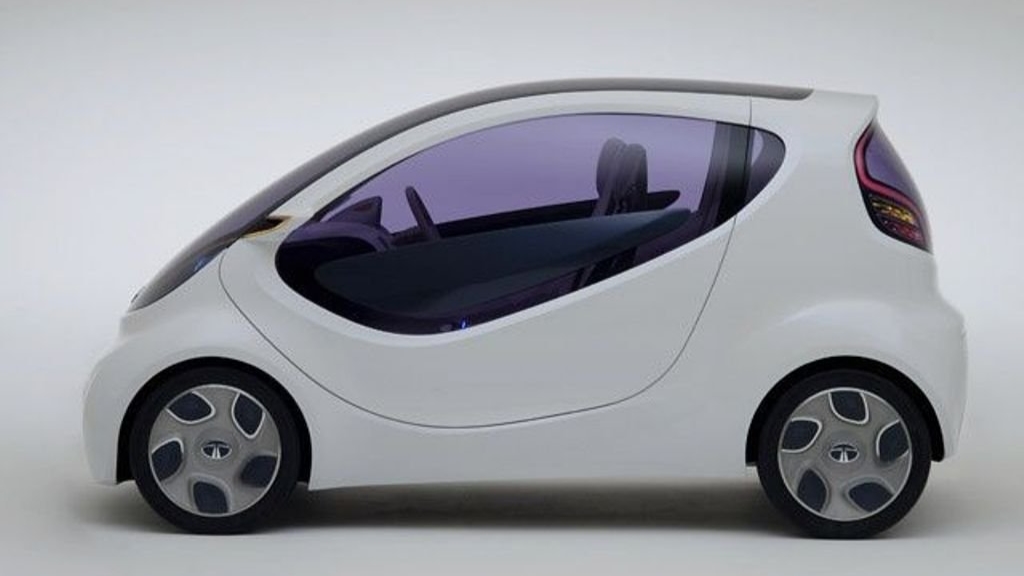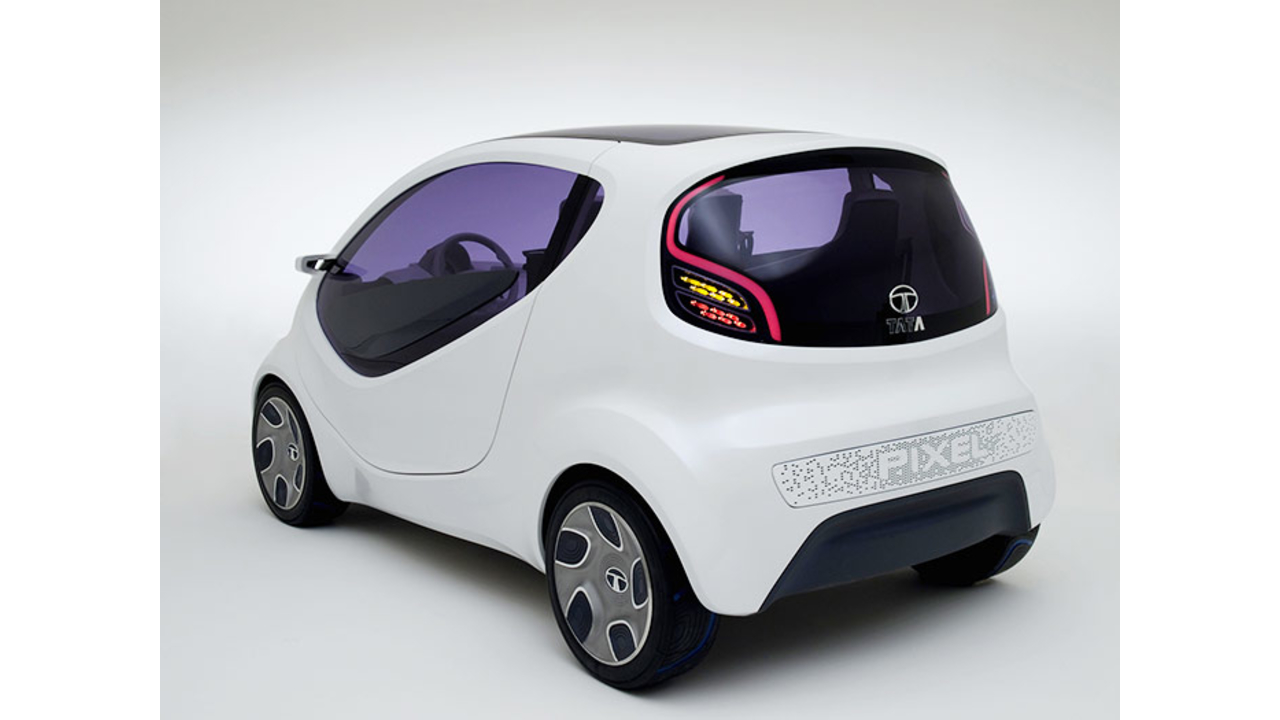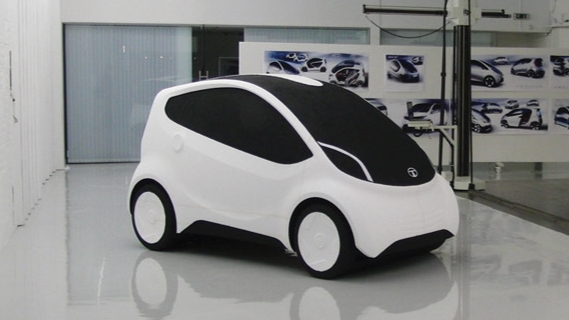Tata Nano EV – the perfect family vehicle in 2022?
it is time to revive the Nano

Tata Motors has tread where no other Indian car company has feared to tread. The Tata Nexon is the best-rated electric car in India today and the company is planning to launch 10 more EV car models over the next decade. And yet, we believe that they missed a trick.
The company had gone to town around 2005-06 with what they called the sub-Rs.1 Lakh car (approx. $1,500 at current exchange rates). The car arrived in 2008 at a cost of Rs.2.5 Lacs which was around $3,500 and was available in manual transmission option only. Neither did it connect with rural India where it was targeted nor with the urban car owner who looked down upon it.
This byte-sized four-seater family car or lakhtakia car as they say in Hindi eventually went out of production in 2018.
- India sees uptick in demand for charging stations - from an unlikely source
- Oil company to set up charging stations, textile maker gifts eScooters - India's tryst with eV adoption
If you’re wondering why we’re talking about an ICE vehicle, one which is considered a failure? That too in a publication that supports new-age electric vehicles. Quite simply because we feel that Tata Nano had a premature demise.
Given the current situation and the demand for affordable electric cars - it seems that there is a need for a reincarnation of the Tata Nano – not with modern aesthetics but in an electric avatar.
Driving a petrol car is a luxury now

Back in 2009, Petrol and Diesel prices experienced a rarity. The fuel price in India dropped from Rs. 45.62 and Rs. 32.86 to Rs. 40.62 and Rs. 30.86, respectively. This is approximately the same time when Tata announced the Nano. Fast forward to the current, the fossil fuel prices have increased drastically and petrol is priced at close to Rs. 100 per liter in most parts of the country and in some places, you have to shell out close to Rs. 110 for a liter of petrol. Diesel too has a similar story.
This exponential rise in fuel prices means that the budget of a common man or a regular middle-class household has gone for a toss. The daily commutation from home to office and vice versa is costlier than ever before while the increments in salary are nominal.
Get daily insight, inspiration and deals in your inbox
Sign up for breaking news, reviews, opinion, top tech deals, and more.
For the self-employed segment, the story is even worse. Small and medium-sized businesses are reeling under the impact of Covid-19 and thus the usage of cars for family outings or leisure trips has decreased drastically.
Affordable Electric car is a myth
The adoption of electric vehicles has increased and one of the primary reasons has been mentioned above. The local and Central governments can also be credited – not only for various schemes and subsidies they are offering but also for the awareness they generate.
The recent numbers do not lie – however – on a closer inspection you’d realize that it's the cheaper electric cars that are selling the most. Luckily, Tata’s Nexon is leading the pack which suggests that to a certain extent the company has been able to offer what users want.
The surge in adoption means that there is a demand but as of now, there is a massive void in the market when it comes to affordable electric cars. There is only one electric car priced around Rs. 10 lakh and absolutely none in the price segment of Rs. 4 Lakh to Rs. 8 Lakh.
Though we’ve heard some announcements of sub-Rs. 5 lakh electric car, however, the Strom R3 is more of a three-wheeler disguised as a car offering space for only a couple of people.
Competition isn't ready to commit

One of the executives of Maruti Suzuki recently hinted that the company feels that there isn’t enough demand for electric cars in the market and hence is waiting for the right time to launch its electric cars.
Industry expert Ashwini Tiwary, Founder of Autobot Academy feels that the company might have the technology ready and could be waiting for favourable market conditions to switch.
However, without viable options, there will be no demand as well. The fact that brands like Honda or Maruti Suzuki have massive retail and after-sale network in place already means that it would be fairly easy to roll out battery operated cars, compared to startups who are not only working on their products from scratch but have to build the necessary infrastructure as well.
Time for an Electrified Nano
If you can recall, it was initially said that the Nano is a replacement for your scooter or a motorbike. It would give a roof thus saving you from heat and rain – which probably pitted it wrongly.
Instead of being treated as an affordable city car that could fit in the smallest of the parking spaces easily, it was compared to a four-wheeled auto-rickshaw – which totally wasn’t the case.
Snap to the current, Tata Motors is already a market leader when it comes to electric cars. It has already tested waters with a couple of electric cars, hence it totally makes sense for Tata to introduce an affordable electric car – an electric version of a Nano.
Not like how Nokia revived the Nokia 3310 looking to sell on its own riding on nostalgia but like a fully functional electric car with all the possible gadgets in place.
With a range of 220-250 Km, a seating capacity of 4, and an affordable price tag of around Rs 500,000 could surely be what most households need. It could be a perfect car to drive in and around the city helping you complete the daily chores or driving you to and from home to office and an occasional long drive on a weekend with the family could add to the bliss.
While you do not need a Tesla-like entertainment system but basic onboard navigation, a digital control system and an air conditioner could get the job done. Not to forget the minimal commutation costs and the environmental benefits to go along with it.
- Best electric scooters you can buy in India right now
- Smartphone Gaming - what prompted it and where it is headed in 2022
- Tech headlines of 2021 - events that made us sit up and take note
Want to know about the latest happenings in tech? Follow TechRadar India on Twitter, Facebook and Instagram!
Jitendra has been working in the Internet Industry for the last 7 years now and has written about a wide range of topics including gadgets, smartphones, reviews, games, software, apps, deep tech, AI, and consumer electronics.
